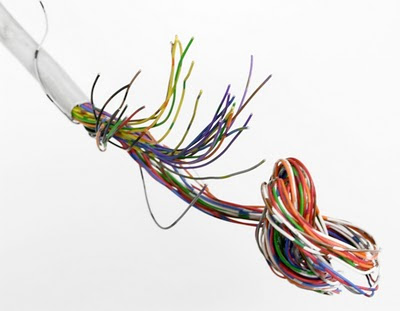 "I’m with Simon Johnson here: how is it possible, at this late date, for Obama to be this clueless?
"I’m with Simon Johnson here: how is it possible, at this late date, for Obama to be this clueless? The lead story on Bloomberg right now contains excerpts from an interview with Business Week which tells us:
President Barack Obama said he doesn’t “begrudge” the $17 million bonus awarded to JPMorgan Chase & Co. Chief Executive Officer Jamie Dimon or the $9 million issued to Goldman Sachs Group Inc. CEO Lloyd Blankfein, noting that some athletes take home more pay.
The president, speaking in an interview, said in response to a question that while $17 million is “an extraordinary amount of money” for Main Street, “there are some baseball players who are making more than that and don’t get to the World Series either, so I’m shocked by that as well.”
“I know both those guys; they are very savvy businessmen,” Obama said in the interview yesterday in the Oval Office with Bloomberg BusinessWeek, which will appear on newsstands Friday. “I, like most of the American people, don’t begrudge people success or wealth. That is part of the free- market system.”
 This disconnect Obama has with reality is echoed in the disconnect between tech and all things political, financial and to a large degree, military and corporate as tech either works or doesn't, a fact alien to the various colluding and often incompetent parties bent on lining pockets and maintaining control while this once great nation slides slowly toward the abyss.
This disconnect Obama has with reality is echoed in the disconnect between tech and all things political, financial and to a large degree, military and corporate as tech either works or doesn't, a fact alien to the various colluding and often incompetent parties bent on lining pockets and maintaining control while this once great nation slides slowly toward the abyss.Maybe Obama should read this BRT tidbit regarding the banksters, maybe then he might change his tune but somehow I think he really doesn't get it and never will.
 In Wired, an outstanding article titled In the Next Industrial Revolution, Atoms Are the New Bits, the move toward micro manufacturing is here, driven by computation, nanotech and the ubiquity of the web.
In Wired, an outstanding article titled In the Next Industrial Revolution, Atoms Are the New Bits, the move toward micro manufacturing is here, driven by computation, nanotech and the ubiquity of the web.Here’s the history of two decades in one sentence: If the past 10 years have been about discovering post-institutional social models on the Web, then the next 10 years will be about applying them to the real world.
This story is about the next 10 years.
Transformative change happens when industries democratize, when they’re ripped from the sole domain of companies, governments, and other institutions and handed over to regular folks. The Internet democratized publishing, broadcasting, and communications, and the consequence was a massive increase in the range of both participation and participants in everything digital — the long tail of bits.
Now the same is happening to manufacturing — the long tail of things.
The tools of factory production, from electronics assembly to 3-D printing, are now available to individuals, in batches as small as a single unit. Anybody with an idea and a little expertise can set assembly lines in China into motion with nothing more than some keystrokes on their laptop. A few days later, a prototype will be at their door, and once it all checks out, they can push a few more buttons and be in full production, making hundreds, thousands, or more. They can become a virtual micro-factory, able to design and sell goods without any infrastructure or even inventory; products can be assembled and drop-shipped by contractors who serve hundreds of such customers simultaneously.
Today, micro-factories make everything from cars to bike components to bespoke furniture in any design you can imagine."
The only question about this article is its tacit recommendation of sending the construct data to China instead of encouraging the building of fab factories in the US in order to resuscitate this country's ability to actually make things again instead of funding China (Walmart anyone?) and keeping this country dependent on outsiders while watching dollars leave home never to be seen again.
It makes one think, doesn't it?
"Two trends are driving this. First, there’s the maturation and increasing Web-centrism of business practices in China. Now that the Web generation is entering management, Chinese factories increasingly take orders online, communicate with customers by email, and accept payment by credit card or PayPal, a consumer-friendly alternative to traditional bank transfers, letters of credit, and purchase orders. Plus, the current economic crisis has driven companies to seek higher-margin custom orders to mitigate the deflationary spiral of commodity goods.
For a lens into the new world of open-access factories in China, check out Alibaba .com, the largest aggregator of the country’s manufacturers, products, and capabilities. Just search on the site (in English), find some companies producing more or less what you’re looking to make, and then use instant messaging to ask them if they can manufacture what you want. Alibaba’s IM can translate between Chinese and English in real time, so each person can communicate using their native language. Typically, responses come in minutes: We can’t make that; we can make that and here’s how to order it; we already make something quite like that and here’s what it costs.
"Intelligence is a prerequisite of vision, vision is not a prerequisite of intelligence." - Robert E

No comments:
Post a Comment